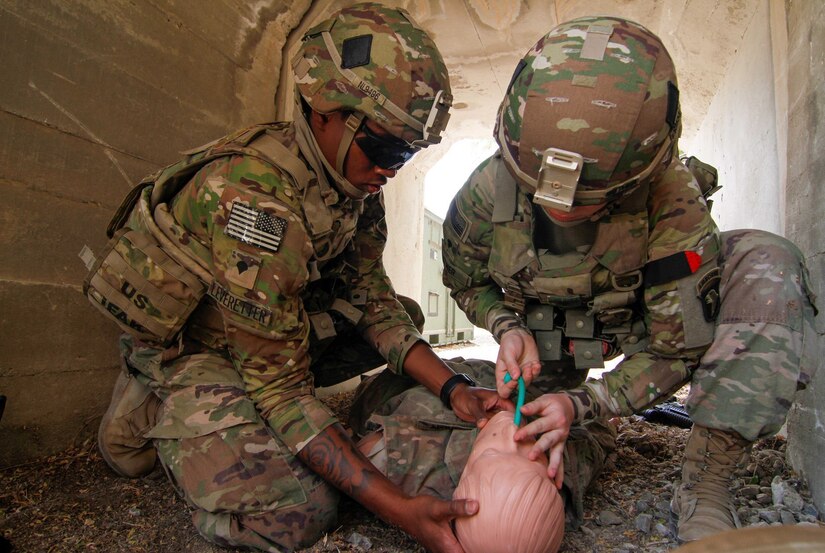By Army 1st Lt. Verniccia Ford, 101st Sustainment Brigade,
101st Airborne Division
BAGRAM AIR FIELD, Afghanistan -- The 101st Resolute Support
Sustainment Brigade medical team consists of three soldiers -- a family
practice medical doctor and two combat medic specialists -- who work the unit’s
aid station 7 days a week.
This three-man team renders medical support to more than 500
service members. With so few medical experts in the brigade, the medical team’s
goal is to thoroughly train as many “Lifeliner” soldiers as possible to become
qualified combat lifesavers.
“We focus on training soldiers to the U.S. Army medical
school standard,” said Army Spc. Phillips Pounders, a combat medical specialist
who helped facilitate the training. “It’s important to ensure that they get
in-depth realistic training so in the event they do have to render aid,
soldiers in our formation can count on one another to get them back home to
their loved ones”.
Training
Soldiers began the training in their full combat uniforms,
consisting of body armor, helmet, gloves, eye protection and their assigned
weapons. During lane evaluations, soldiers ducked for cover as the sound of
weapons fire rang out around them.
“The training was physically fatiguing but overall exciting.
The instructors are watching your every move, sometimes screaming to make sure
you’re moving in a timely fashion and following all medical guidelines to get
our buddy patched up and medically evacuated off the scene,” said Army Pfc.
Winshelle Pierre, an automated logistics specialist for the brigade.
“When we conduct lane evaluations, we try to make it as
intense as possible to show soldiers that you will be dealing with fear and
adrenaline during a real combat related incident,” said Army Staff Sgt. Tyler
Rector, a combat medical specialist and course instructor.
“As a force multiplier, medics can only be in one place at a
time,” he added. “On the battlefield lifesaving interventions increase the
patient’s chances of survival”.
The brigade’s medical team will continue to expand their
knowledge base to educate themselves and their soldiers.
“Our goal is to train all service members deployed on the
importance of a properly trained combat lifesaver,” Rector said. “Everything
taught can save a life and bring our brothers and sisters home safe.”







No comments:
Post a Comment